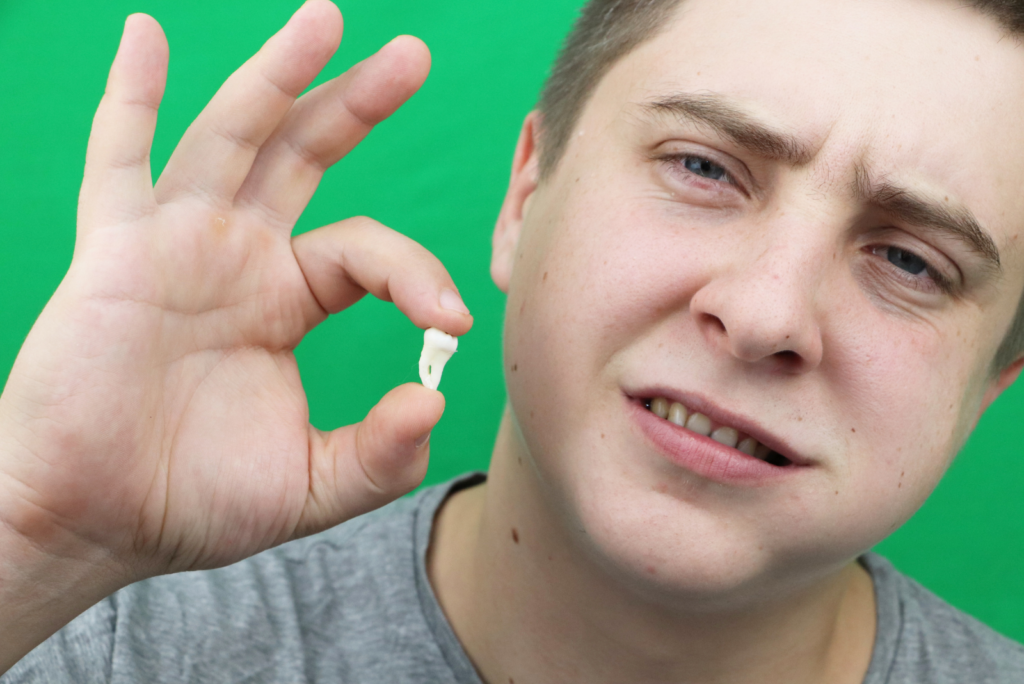Wisdom tooth pain typically occurs due to impaction, overcrowding, or infection, and can be effectively managed through professional dental care, pain medications, and in many cases, extraction to prevent future complications. At Lansdowne Family Dental, Dr. Wael Elosta and our experienced dental team frequently help patients throughout Lansdowne, Ashburn, Leesburg, and surrounding Virginia communities find relief from this common yet distressing dental issue that affects millions of people during their late teens and early twenties.
Understanding wisdom tooth pain is crucial because these third molars often cause problems due to insufficient space in the modern human jaw. The most common causes and symptoms include:
- Impaction issues – Wisdom teeth unable to fully emerge due to space constraints
- Gum inflammation – Partially erupted teeth create pockets where bacteria accumulate
- Crowding pressure – Additional teeth pushing against existing molars causing discomfort
- Infection risk – Difficulty cleaning around wisdom teeth leads to decay and gum disease
While wisdom tooth pain can be quite distressing and disruptive to daily life, effective treatment options exist ranging from conservative management to surgical removal depending on your specific situation. The key is early professional evaluation to determine the best approach for your individual needs and prevent more serious complications.

This comprehensive guide will explore the various causes of wisdom tooth discomfort, effective home and professional treatments, and prevention strategies to help you make informed decisions about your oral health and find lasting relief from wisdom tooth pain.
Understanding Wisdom Teeth
Wisdom teeth, also known as third molars, are the final set of molars that typically emerge between the ages of 17 and 25. These teeth are a remnant from our evolutionary past when our ancestors needed extra molars to grind tough, raw foods. In modern times, with our softer diets and smaller jaw sizes, wisdom teeth often cause more problems than they solve.
Causes of Wisdom Tooth Pain
The eruption of wisdom teeth can be a painful process for several reasons:
- Lack of Space: Many people simply don’t have enough room in their mouths for these additional teeth. This can lead to crowding, misalignment, and impaction.
- Impaction: When a wisdom tooth doesn’t have enough room to fully emerge, it can become impacted. This means it’s trapped beneath the gum line or only partially erupted.
- Partial Eruption: Sometimes, wisdom teeth only partially break through the gum. This can create a flap of gum tissue that traps food and bacteria, leading to infection and pain.
- Misalignment: Wisdom teeth may come in at odd angles, pressing against other teeth or the cheek, causing discomfort.
- Infection: The area around a partially erupted wisdom tooth can become infected, leading to a condition called pericoronitis.
- Cysts or Tumors: In rare cases, the sac within the jawbone that surrounds the wisdom tooth can fill with fluid, forming a cyst that can damage nearby teeth, jawbone, and nerves.
Symptoms of Wisdom Tooth Problems
Patients with problematic wisdom teeth might experience:
- Pain or tenderness in the back of the mouth
- Swelling in the gums or jaw
- Difficulty opening the mouth fully
- Bad breath or an unpleasant taste in the mouth
- Headaches or jaw pain
- Swollen lymph nodes in the neck
- Fever, indicating infection
Home Remedies for Wisdom Tooth Pain
While professional treatment is often necessary for wisdom tooth issues, there are several home remedies that can provide temporary relief:
- Ice Pack: Applying a cold compress to the outside of your cheek can help reduce swelling and numb pain. Use it for 15-20 minutes at a time, with 15-minute breaks in between.
- Saltwater Rinse: Mix 1/2 teaspoon of salt in a cup of warm water. Swish this solution in your mouth for about 30 seconds before spitting it out. Repeat 2-3 times daily. This can help reduce bacteria and soothe inflammation.
- Cloves: Cloves contain eugenol, a natural anesthetic. You can place a whole clove near the affected area or apply clove oil with a cotton swab. Be careful not to swallow the oil.
- Onion: The sulfur compounds in onions have antimicrobial properties. Chew a small piece of raw onion on the affected side for a few minutes, then spit it out.
- Tea Bags: Used, cooled tea bags can be applied to the sore area. The tannins in tea have astringent properties that can help reduce swelling.
- Peppermint: Peppermint has mild numbing properties. You can apply peppermint tea bags or diluted peppermint essential oil to the affected area.
- Garlic: Crush a clove of garlic and mix it with a little salt to form a paste. Apply this to the painful area. Garlic has natural antibacterial properties.
- Over-the-Counter Pain Relievers: Nonsteroidal anti-inflammatory drugs (NSAIDs) like ibuprofen can help manage pain and reduce inflammation.
- Numbing Gel: Over-the-counter oral numbing gels containing benzocaine can provide temporary relief.
- Warm Compress: For some people, warmth can be more soothing than cold. Apply a warm, damp towel to the outside of your cheek.
Professional Treatments
When home remedies aren’t enough, it’s time to seek professional help. At Lansdowne Family Dental, we offer several treatments:
- Antibiotics: If there’s an infection, we may prescribe antibiotics to clear it up before considering further treatment.
- Extraction: Often, the best long-term solution is to remove problematic wisdom teeth. This is a common procedure that we perform regularly.
- Operculectomy: In some cases where the wisdom tooth has partially erupted, we might remove the gum flap covering it to reduce the risk of infection.
- Coronectomy: For teeth that are very close to nerves, we might remove just the crown of the tooth, leaving the roots in place to avoid nerve damage.
The Wisdom Tooth Removal Process
If we determine that extraction is necessary, here’s what you can expect:
- Examination: We’ll take X-rays to determine the position of your wisdom teeth and plan the extraction.
- Anesthesia: We use local anesthesia to ensure you’re comfortable during the procedure. For more complex cases or anxious patients, we may recommend sedation.
- Extraction: The dentist will make an incision in the gum tissue to expose the tooth and bone. Any bone blocking access to the tooth root will be removed. The tooth may be divided into sections if it’s easier to remove in pieces.
- Cleaning and Closing: The site will be cleaned of any debris. Stitches may be necessary, though often the wound is left to close on its own.
- Recovery: You’ll be given gauze to bite down on to help a blood clot form in the socket. We’ll provide detailed aftercare instructions.
Preventing Wisdom Tooth Problems
While we can’t prevent wisdom teeth from growing, we can take steps to minimize complications:
- Regular Dental Check-ups: Routine visits allow us to monitor the progress of your wisdom teeth and catch potential issues early.
- Good Oral Hygiene: Brush twice daily, floss regularly, and use an antiseptic mouthwash to keep your mouth clean and reduce the risk of infection.
- Healthy Diet: A balanced diet rich in vitamins A, C, and E can help boost your immune system and promote gum health.
- Stay Hydrated: Drinking plenty of water helps flush away food particles and bacteria.
- Avoid Smoking: Smoking can increase the risk of complications after wisdom tooth extraction and slow healing.
When to Seek Immediate Care
While some wisdom tooth pain can be managed at home, there are situations where you should seek immediate dental care:
- Severe, persistent pain that doesn’t respond to over-the-counter pain relievers
- Swelling that extends to the neck or affects your ability to swallow
- Fever, which could indicate an infection
- Bleeding that doesn’t stop after applying pressure
- Difficulty breathing or swallowing
At Lansdowne Family Dental, we’re committed to providing comprehensive care for all your dental needs, including wisdom tooth issues. If you’re experiencing wisdom tooth pain or have concerns about your wisdom teeth, don’t hesitate to schedule an appointment. We’ll assess your situation, discuss your options, and develop a personalized treatment plan to ensure your comfort and long-term dental health.
Remember, while wisdom teeth can be troublesome, with proper care and professional guidance, we can manage or resolve most issues effectively. Your oral health is our priority, and we’re here to support you every step of the way, from prevention through treatment and recovery.






